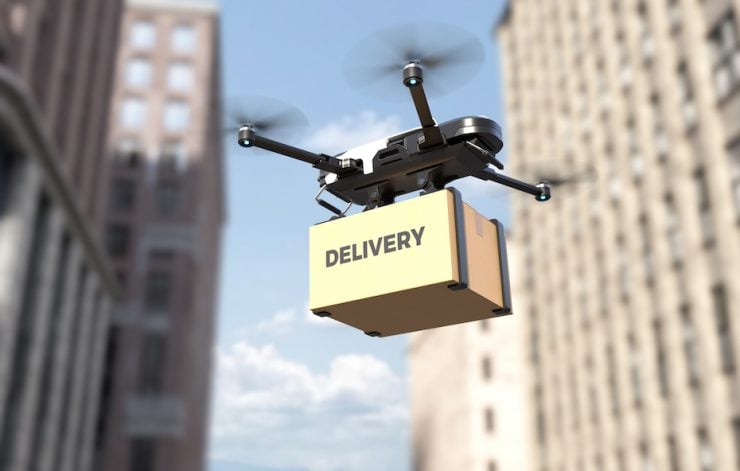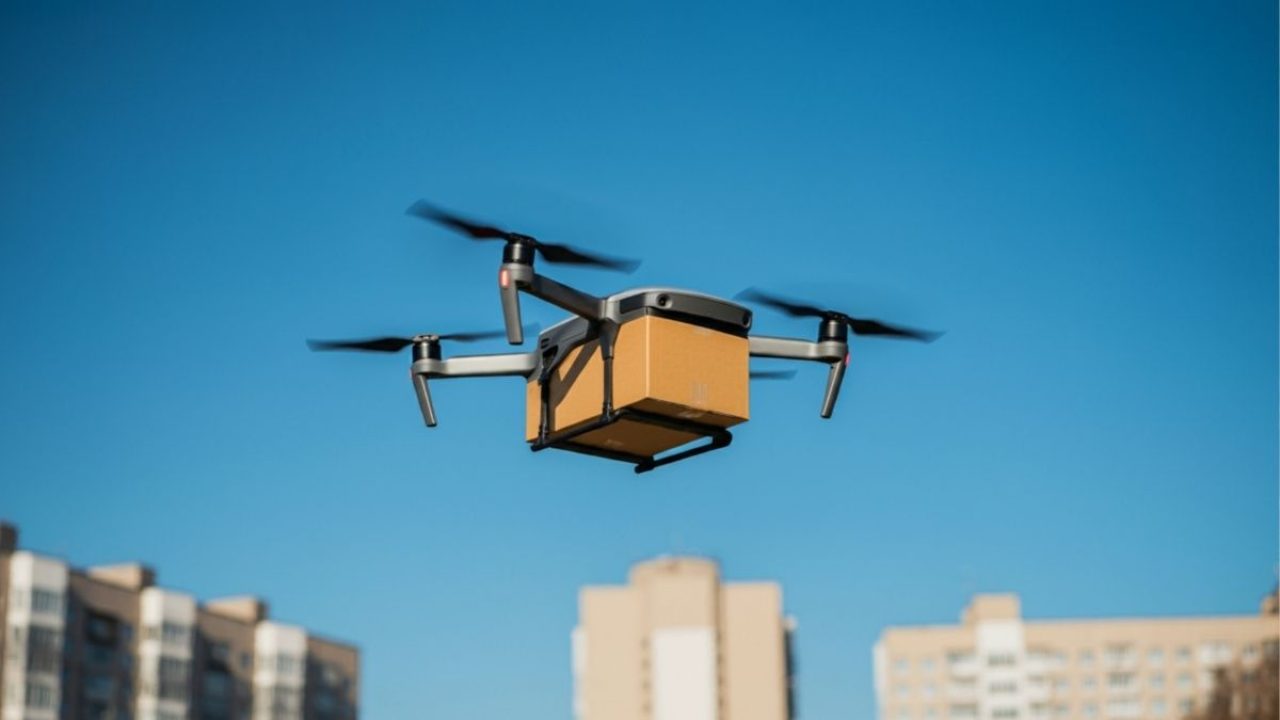Kuwait is stepping into the future with groundbreaking trials of drone deliveries in urban neighborhoods. This initiative is not just a technological experiment it represents a transformative shift in how goods and services reach residents in fast-paced city environments. From groceries to medical supplies, drones promise a faster, more efficient, and safer method of transport.
Urban neighborhoods, often crowded and congested, have long struggled with timely delivery of essential goods. Traditional delivery methods face obstacles such as traffic, parking limitations, and narrow streets. By integrating drones into these communities, Kuwait aims to reduce these challenges while embracing innovation that can reshape everyday life.
A New Era in Urban Deliveries
The trials mark a significant leap forward in logistics technology. Drones, equipped with advanced navigation systems, are now being tested to safely deliver packages directly to homes. This development is especially promising for densely populated areas, where traditional delivery vehicles may face delays.
Residents can expect not only faster deliveries but also a reduction in noise and air pollution. Drones are electrically powered and much smaller than conventional trucks, meaning they leave a minimal environmental footprint. In a city like Kuwait, where urban planning and sustainability are becoming increasingly important, this is a remarkable advantage.
How Drone Deliveries Work
Drone delivery systems use a combination of GPS technology, sensors, and AI-powered navigation to reach their destinations. Packages are secured in lightweight compartments, ensuring that goods arrive safely. Operators can track each drone in real-time, giving customers peace of mind about the status of their delivery.
The process begins when a resident places an order with a participating store or service provider. The order is then prepared and loaded onto a drone at a designated dispatch point. Within minutes, the drone can navigate through urban airspace and reach the customer’s doorstep. This speed is particularly useful for urgent deliveries, such as medicines or perishable food items.
Enhancing Convenience for Residents
One of the most exciting aspects of these trials is the convenience offered to residents. Imagine ordering groceries or essential supplies and receiving them within a fraction of the time compared to traditional delivery methods. For busy families, working professionals, and elderly residents, this could be life-changing.
Moreover, contactless delivery has become an essential feature in today’s world. Drones can land or hover to drop packages without any human interaction, enhancing safety and hygiene. This feature has proven to be particularly important during health crises or for individuals who are homebound.

Supporting Local Businesses
Kuwait’s drone delivery initiative is not only beneficial to residents but also to local businesses. Small and medium-sized enterprises (SMEs) often struggle with logistics and delivery costs. By leveraging drones, businesses can expand their reach and deliver products more efficiently.
The reduction in delivery time can translate into increased customer satisfaction and loyalty. Businesses that adopt drone deliveries may gain a competitive advantage, offering innovative services that distinguish them from traditional competitors.
Navigating Safety and Regulations
Safety is a top priority in drone operations. These trials include strict adherence to safety protocols, including flight path restrictions and altitude limits to avoid accidents. Drones are equipped with sensors that detect obstacles, preventing collisions with buildings, vehicles, or pedestrians.
Regulations are also being carefully considered. Authorities in Kuwait are working to ensure that drone operations comply with airspace rules and privacy standards. This careful approach helps build trust among residents and ensures the technology is used responsibly.
Environmental Benefits
Beyond convenience, drones offer substantial environmental benefits. Traditional delivery vehicles rely on fuel and contribute to air pollution. In contrast, drones operate electrically and are significantly quieter. This shift can lead to a cleaner, more sustainable urban environment over time.
Reduced traffic congestion is another major advantage. With fewer delivery trucks on the roads, urban neighborhoods can experience smoother traffic flow, shorter travel times for residents, and a more pleasant overall atmosphere.
The Future of Urban Mobility
Kuwait’s drone delivery trials are part of a larger vision for the future of urban mobility. These trials are a step toward creating smart cities, where technology seamlessly integrates with daily life. The potential for drones extends beyond deliveries, including applications in healthcare, emergency response, and infrastructure inspection.
Imagine a scenario where emergency medical supplies are delivered in minutes or where engineers can use drones to inspect buildings without disrupting city life. These possibilities highlight how drones can become a cornerstone of modern urban infrastructure.
Public Reception and Community Impact
Initial reactions from the community have been positive. Residents appreciate the innovation and recognize the convenience that drones can bring. There is excitement about the potential for faster, safer, and more efficient delivery services.
Community engagement is key to the success of these trials. Authorities and companies are seeking feedback from residents to refine routes, delivery methods, and scheduling. This collaboration ensures that the technology serves the people effectively and addresses real-world needs.

Overcoming Challenges
While the potential is immense, the trials are not without challenges. Weather conditions, such as strong winds or sandstorms, can affect drone performance. Maintaining the drones, ensuring battery longevity, and managing air traffic are also critical concerns.
However, ongoing technological advancements are addressing these challenges. More robust drones with longer battery life, improved navigation systems, and enhanced safety features are making urban drone deliveries increasingly feasible.
Inspiring Global Innovation
Kuwait’s trials have caught the attention of innovators worldwide. Other countries are closely watching these developments to learn how drones can be integrated into urban environments. The success of these trials could inspire a global shift toward more efficient, technology-driven logistics solutions.
Moreover, these initiatives showcase Kuwait’s commitment to adopting cutting-edge technology and creating a future-ready urban landscape. By embracing innovation, the country positions itself as a leader in modern urban planning and logistics.
Conclusion
Kuwait’s drone delivery trials in urban neighborhoods represent a bold step into the future. They combine convenience, efficiency, environmental benefits, and technological innovation in a way that has the potential to redefine urban living.
As trials continue and technology improves, residents can expect a new era of faster, safer, and smarter deliveries. Local businesses can expand their reach, cities can reduce traffic congestion and pollution, and communities can enjoy a more connected and responsive urban environment.
Ultimately, Kuwait’s initiative is more than just a delivery system it is a vision of progress, innovation, and possibility. With drones poised to become an integral part of urban life, the future of delivery has never looked more exciting.
Also Read – Kuwait’s Smart Factories Revolutionize Industry 4.0 Innovation



